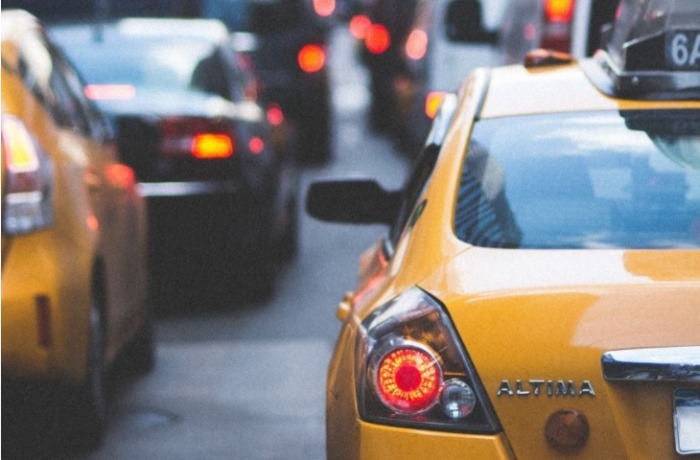July 16, 2021 By Allie Griffin
Mayor Bill de Blasio called on state officials Thursday to enact congestion pricing by next year.
He urged the MTA to put its long-delayed plan to charge drivers entering Manhattan below 60th Street in place by July 2022.
“It’s time for the state to get in gear, get congestion pricing done,” de Blasio said during a morning press conference.
The new tolls were slated to go into effect in January 2021, but the plan was held up by the Trump administration and delayed by COVID-19. The Biden administration has since given the MTA the go-ahead to conduct an environmental assessment of the plan.
The agency must complete this assessment before the plan can move forward and de Blasio said it has been dragging its feet. He wants the MTA to expedite the assessment.
The congestion pricing plan could generate $15 billion over four years for much-needed capital improvements to the New York transit system.
The fees to enter the congestion pricing zone could be around $11 to $14 for cars and $25 for trucks during peak business hours, state leaders previously told the New York Times. However, the actual figures will be set by the Traffic Mobility Review Board, a six-person panel created in 2019.
De Blasio, on Thursday, announced the he had appointed Sherif Soliman, the Department of Finance Commissioner, to that board. The board members are officially appointed by the MTA, with the requirement that one member is recommended by the mayor, one member resides in the Long Island Rail Road region, and one member resides in the Metro North region.
The mayor said the subway system desperately needs the money for repairs and upgrades as people begin to return to their workplace and school this fall.
“We cannot have a full recovery without the MTA getting stronger,” he said. “The MTA needs to get it together because right now we’re seeing too many problems.”
The program would also help reduce traffic congestion in busy sections of Manhattan, improve air quality and boost public transit ridership.
“The pandemic caused a different problem — lots of people turning back to their cars,” de Blasio said. “We’ve got to stop that because that’s caused congestion on the streets, more pollution, it’s bad for the climate.”
There have also been too many car crashes as well, he added.
“We’ve got to get people out of the cars,” de Blasio said. “Again, the solution [is to] get people back to mass transit, to make mass transit better — that means congestion pricing.”
It’s unacceptable that NYC has a decrepit transit system. As NYers head back to work we need meaningful investment into our public transit. Congestion pricing will raise funds for long-overdue repairs to the MTA, clear up the traffic on our streets & lower our carbon emissions! pic.twitter.com/s7Y69OddFR
— Jessica Ramos (@jessicaramos) July 15, 2021
State Sen. Jessica Ramos joined the mayor’s press conference Thursday and also called on the state to speed up its implementation.
“Congestion pricing will help us check off many things on the to-do list and perhaps even more importantly it’s going to affect the wellbeing of our planet,” Ramos said.
She said the plan would likely reduce the number of cars coming through neighborhoods like Astoria and Long Island City, thereby cutting the amount of pollution.
“Here in Astoria, in our district, we have the highest asthma rates in the entire city…,” Ramos said. “We need less congestion at that gateway neighborhood, around highways, around the Queensboro Bridge, around the Midtown Tunnel. We need everyone’s cooperation in doing this.”
The MTA has not provided any details as to when the tolls would go into effect.







